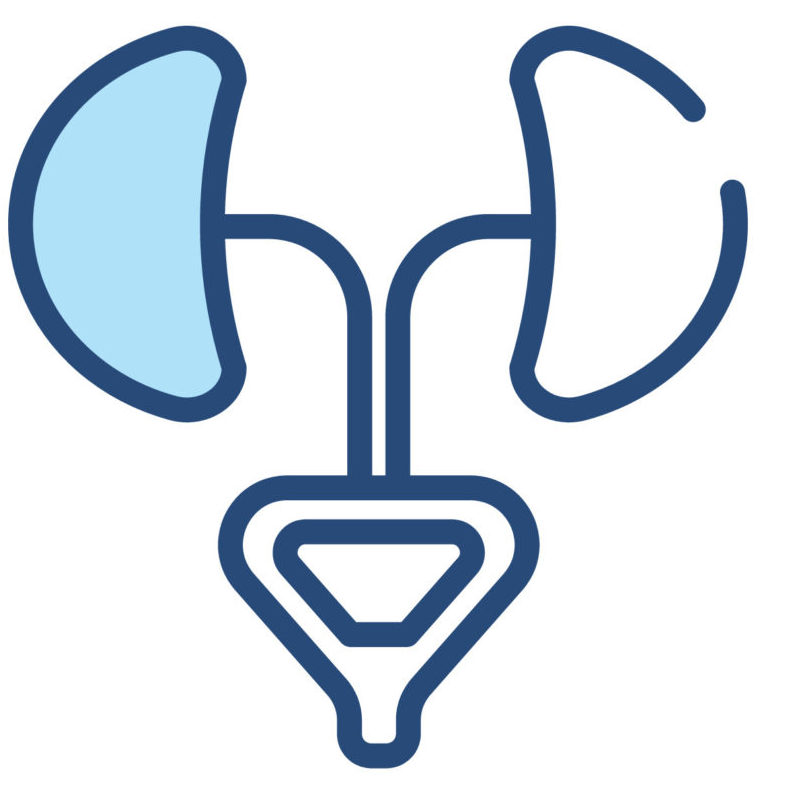Bladder Cancer Diagnosis and Management
Bladder cancer is the eleventh most commonly diagnosed cancer in the UK with over 10000 people diagnosed every year. The most common symptom is blood in the urine which can be either visible, or detected on a urine test at the GP. Other patients develop troublesome bladder symptoms.
Bladder cancer is more common in smokers, people who have worked with industrial chemicals and those who have a long history of certain types of bladder infections. However, many cases develop for no obvious reason.
To diagnose bladder cancer, a cystoscopy (camera inspection of the bladder) is carried out under local or general anaesthetic. A patient will undergo either a CT scan or Ultrasound scan before surgery.
Bladder Cancer Treatment
If a bladder cancer is suspected on a cystoscopy, initial treatment involves an operation to shave the tumour (under anaesthetic) from the bladder lining using a specially designed instrument that is inserted down the water pipe (urethra) – this is a transurethral resection of a Bladder Tumour (TURBT). Some patients need to have a catheter tube in the bladder for 24 hours following the operation and are discharged home after one night. In some cases, a single dose of chemotherapy is given directly into the bladder to reduce the risk of the tumour recurring.
Further treatment is determined by the type, stage and grade of the cancer. In low risk cancers, regular camera inspections of the bladder are carried out to check for recurrence.
Intermediate risk cancers are treated with a 6 week course of chemotherapy directly into the bladder, followed by a further camera inspection. The chemotherapy given into the bladder has a low risk of causing serious side effects – it is not a toxic as having chemotherapy into the bloodstream.
Higher risk bladder cancers may require multiple different treatments. These include a further TURBT operation within 2-6 weeks, treatment with an immunotherapy drug (BCG) or removal of the bladder, which is a major operation (Cystectomy). Your surgeon will discuss the most appropriate option for you. There may also be the opportunity to take part in a clinical trial looking at using new drug treatments.
If the bladder tumour extends deeper into the bladder muscle, then treatment options may include cystectomy, chemotherapy and/or radiotherapy. Such discussions are complex and should ideally take place with the patient and family member or friend present.
Further information on bladder cancer can be found at:
An information leaflet about cystoscopy and TURBT can be found here:

Contact Us

